Nobody seems to know where the word borscht came from. The best guess is that it is a combination of schti (Russian cabbage soup) and buryak (beetroot in Ukrainian). It is first mentioned in the legend about the two-month siege of the Ukrainian fortress Rohatyn by the Crimean offshoot of the Turkish army in the beginning of the sixteenth century. Trying to feed several hundreds of hungry people, including women and children, the Cossacks, defenders of the fortress, collected every edible vegetable (root vegetables, as it was winter) and put them into meat broth. When they ran out of meat, they went vegan and kept cooking only vegetables: carrots, potatoes, beets, cabbage, and beans. It was warm and filling, and it sustained the population for two months. Unfortunately, the defense was broken, Rohatyn was taken, and many captives were transported to a slave market in Constantinople.
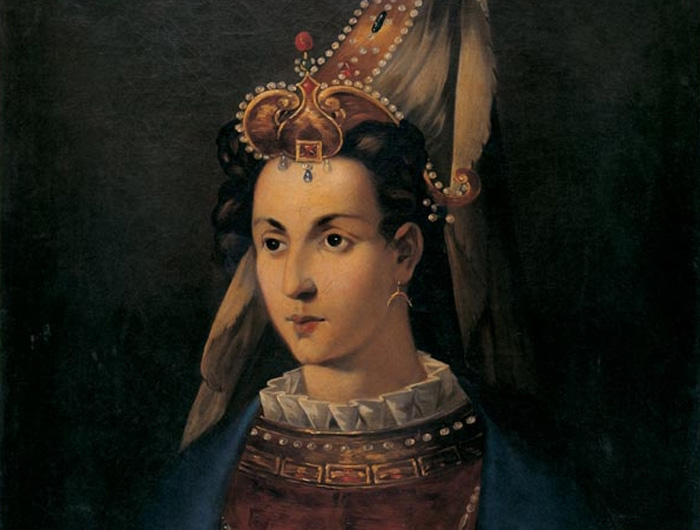
Among those captives was a beautiful fifteen-year old redhead Anastasia Lisowsky, lovingly called Nastia (some sources claim that her name was Alexandra, which is reflected in the world famous serial The Magnificent Century). Together with some other girls, she was selected for the harem of the future Sultan Suleiman who later gained worldwide fame as Suleiman the Magnificent, or the Lawgiver. There, she was at first called simply Roxelana, or Ruslana, which means Ukrainian. It was Suleiman himself who gave her a name Hurrem – “the joyful one.” She became his favorite consort and soon gave him a son, Mehmed. But she wasn’t brought up to be a concubine, and she was too ambitious to be one of many in a harem. She had boundless energy and aspired to be involved in social projects. The Sultan showered her with riches, and she wanted to use her wealth for public welfare. Her first project was a hospital for women near the place that still held horrific memories – the old slave market.
This is Roxelana memorial in Rohatyn.
However, there was an obstacle. Only free citizens were allowed to sponsor public projects, and she was still technically a slave. Beloved, wealthy, the mother of a prince, but a slave! She appealed to the Sultan. Suleiman was so impressed by her desire to improve the lives of his subjects that he immediately granted her freedom. But the next time he came to her room, she wouldn’t let him in! “You are the Sultan of Muslims, I am a free woman, we are not married, so I can’t let you into my bed.” He ranted and raved, but she was right, and the unthinkable happened: they were married in a magnificent formal ceremony, violating a two-hundred-year tradition forbidding a sultan to marry a concubine and for the first time in history elevating a former slave to a status of an empress, Hazeki Sultan.

This is her portrait at the age of about 48 by Titian, titled La Sultana Rossa.
Hurrem was influential in the state affairs, which was unprecedented in those times, but she never abandoned her interest in women’s social welfare. Schools, hospitals, and soup kitchens for the poor and needy earned her undying respect and love of the population. Under his pen name, Muhibbi, Suleiman composed many poems to his beloved.
Throne of my lonely niche, my wealth, my love, my moonlight.
My most sincere friend, my confidant, my very existence, my Sultan, my one and only love.
The most beautiful among the beautiful…
My springtime, my merry faced love, my daytime, my sweetheart, laughing leaf…
My plants, my sweet, my rose, the one only who does not distress me in this world…
My Istanbul, my Caraman, the earth of my Anatolia
My Badakhshan, my Baghdad and Khorasan
My woman of the beautiful hair, my love of the slanted brow, my love of eyes full of mischief…
I’ll sing your praises always
I, lover of the tormented heart, Muhibbi of the eyes full of tears, I am happy.
In defiance of yet another tradition, Hurrem was allowed to have more than one child. And every time she became pregnant, she craved the comfort food of her motherland, the soup of the siege, the borscht. This might be a legend, since there are records of Hurrem requesting quail and rahat lokum (“Turkish delight”) when she was with child, but no records of borscht being cooked in the palace kitchen. Or perhaps the Turkish cooks simply didn’t know how to make it? But we do!
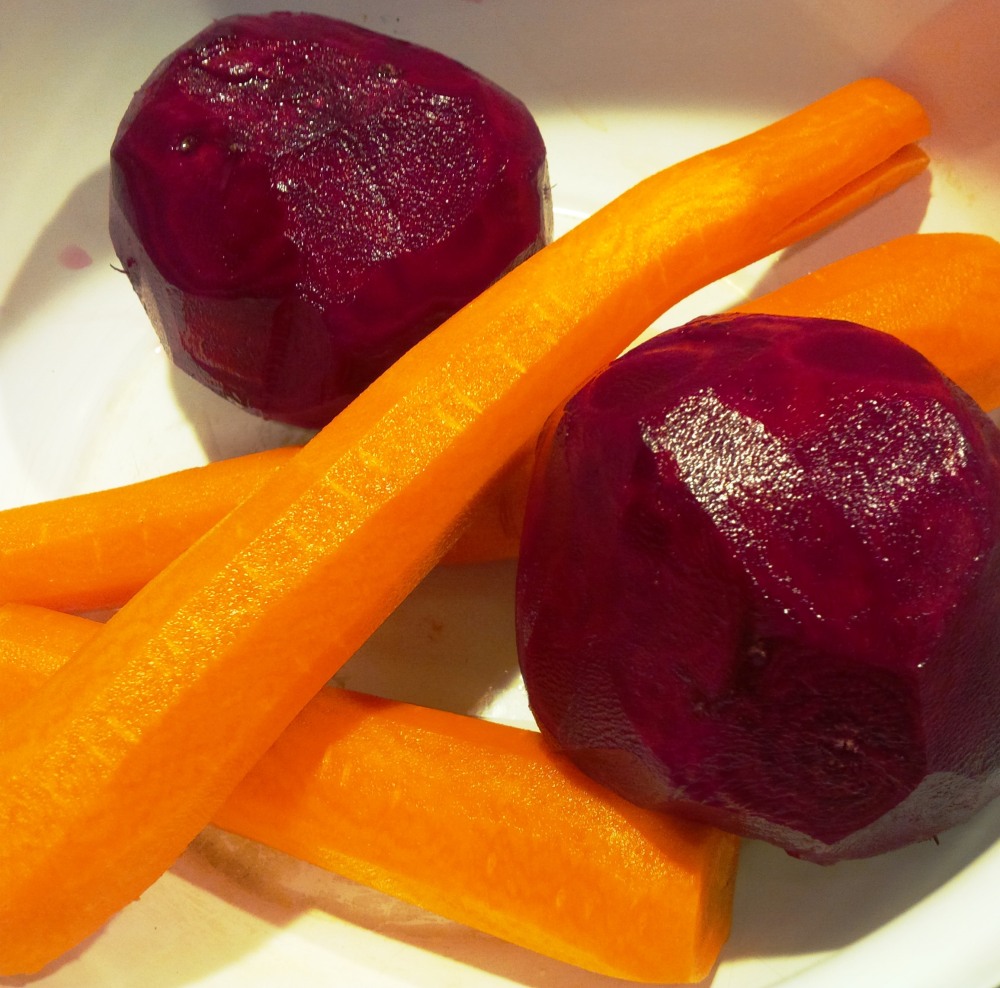
First, we boil carrots and beets. I make a pareve borscht, without meat, but you can do it the Cossack way and throw your veggies into beef stock. We boil them for quite a while, until they are very soft.
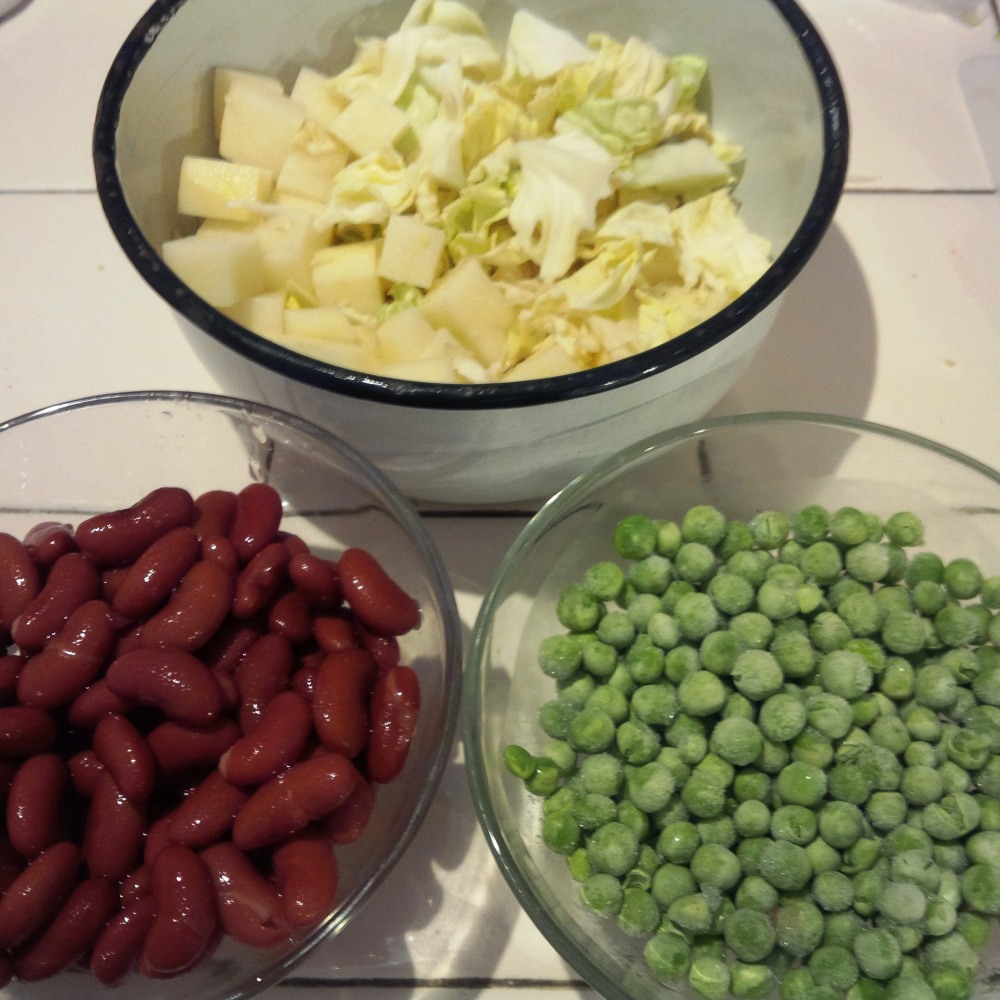
Meanwhile, we prepare the rest of the vegetables: shred cabbage, peel and cut potatoes, and get the beans ready. You can use any beans you have at hand. I prefer a combination of red beans and sweet peas. Once your carrots and beets are cooked, fish them out of the pot and throw the rest of the veggies in. Let carrots and beets cool off while the other veggies are cooking.
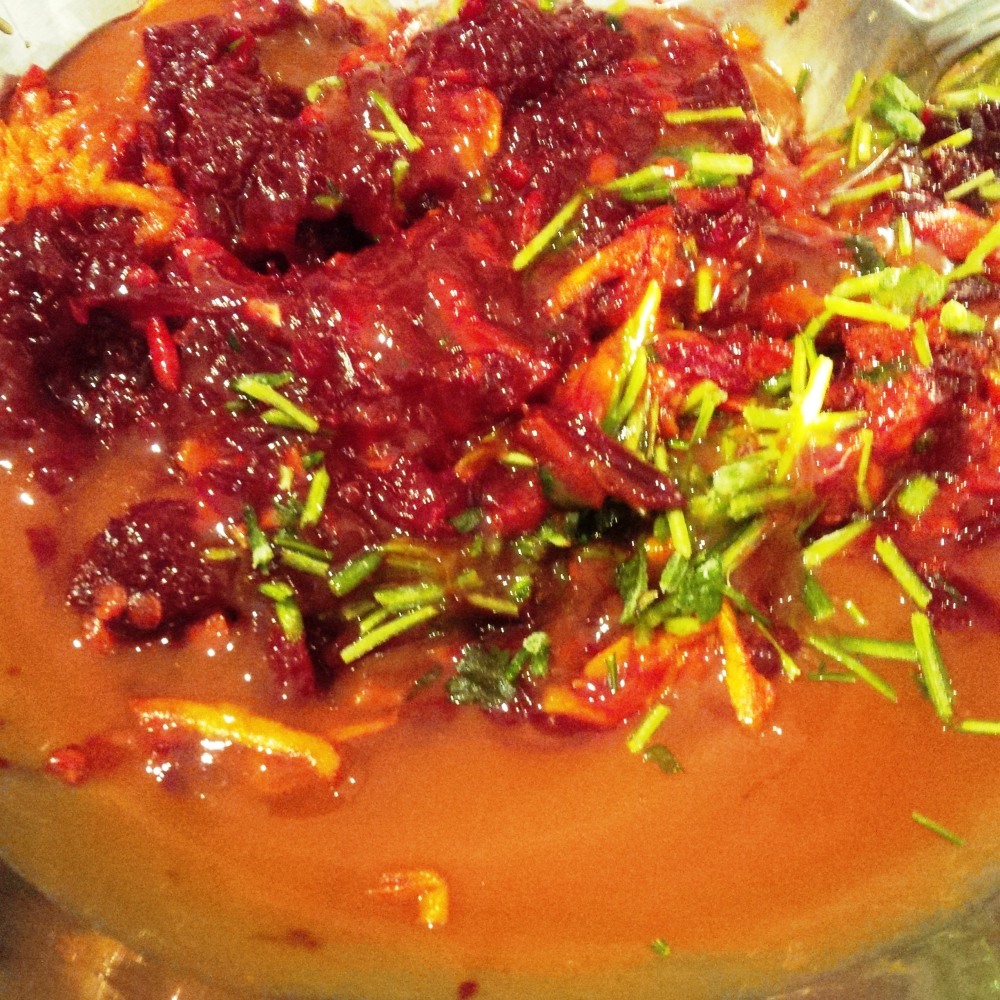
Grate your cooked carrots and beets (I use a food processor) and mix them with tomato sauce. I make my own tomato sauce by simply buying overripe tomatoes, whenever I come across them, pulverizing them in a blender and simmering until the sauce thickens. Then I freeze it for further use. At this point, you can also add fresh parsley, together with chopped stems. Mix it all up, add it to the pot, and stir.
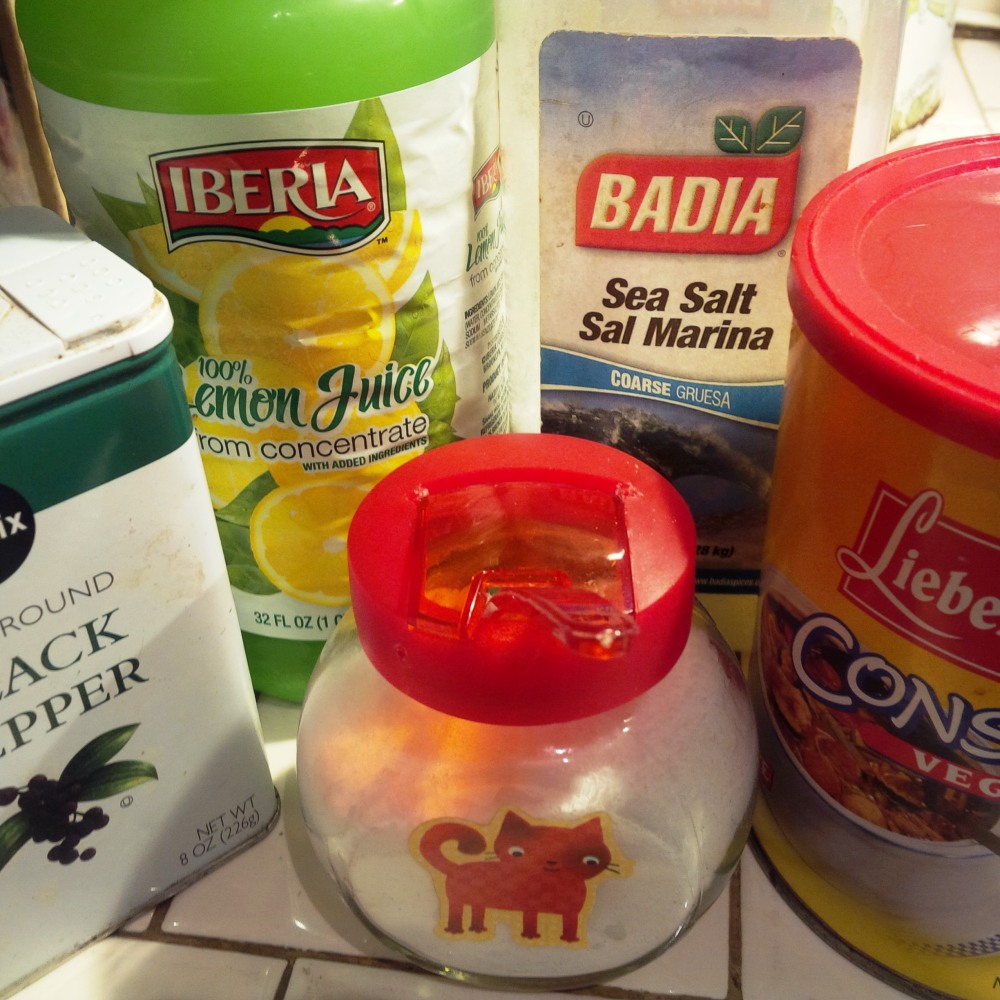
Seasoning time: pareve soup mix, salt and pepper, and the all-important combination of lemon juice and sweetener (I use xylitol). It is the latter that makes the borscht!
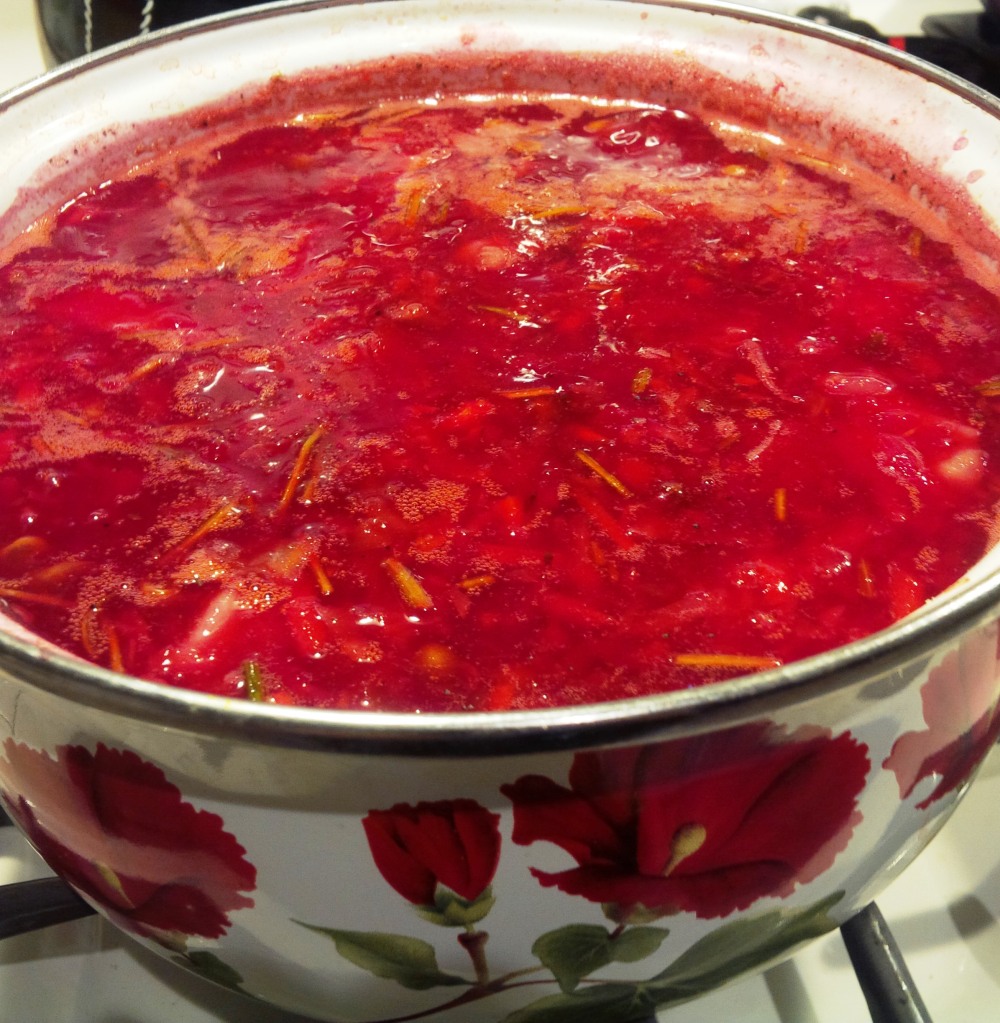
Bring it to boil one more time, stir again, and your borscht is ready. We had it often in winter time, even though in Odessa there wasn’t a real winter. But we always made it for Chanukkah, perhaps because of its combination of sweet and sour flavors, or maybe because it looks so festive. To me, it is comfort food, the same as it was for Hurrem Sultan. She lived an extraordinary life and ended it, surrounded by her adoring husband, children and grandchildren.
I don’t think she ever got her borscht, though, and anyway, this is only a legend, one of many about this incredible Ukrainian woman who had a Jewish secretary and exchanged letters with Christian kings.
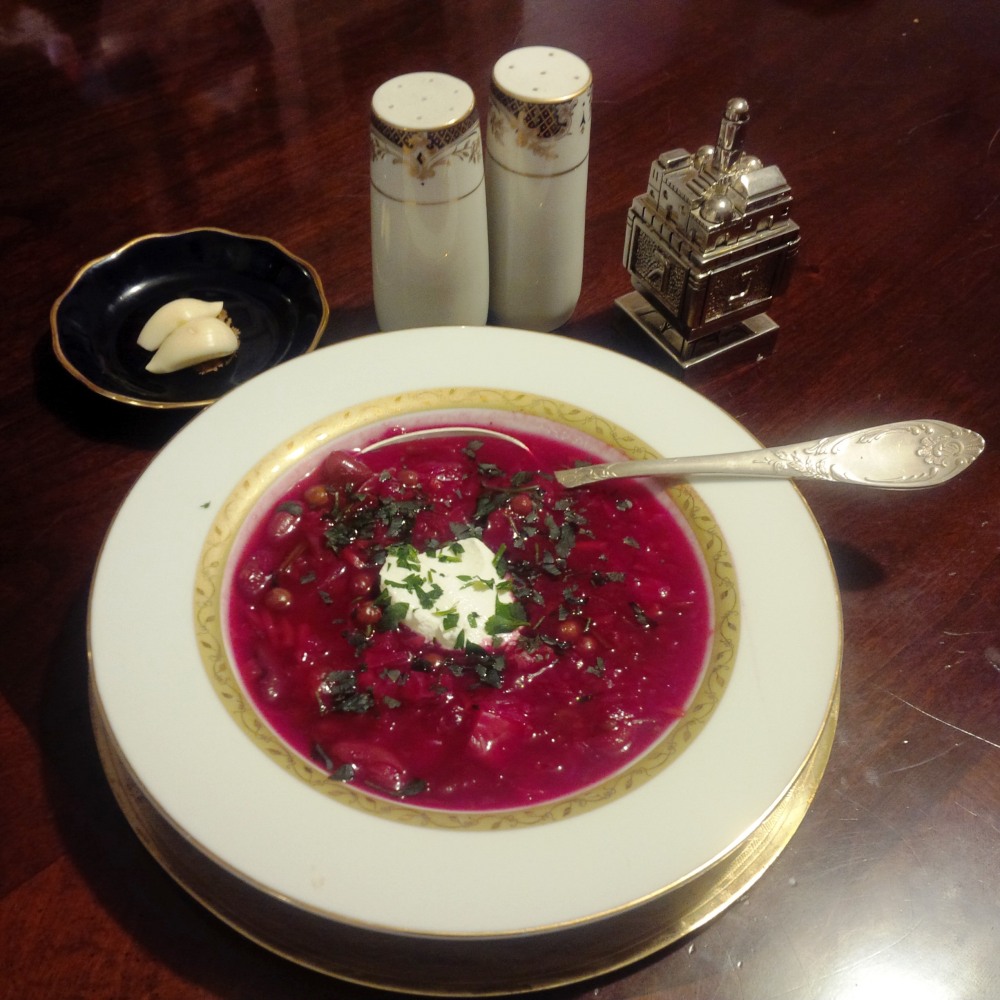
Serve your borscht with sour cream (Tofutti for me) and some raw garlic, as the tradition demands, and delight in the richness and beauty of this simple “siege soup.”
INGREDIENTS
- 1 large or 2 medium whole carrots, peeled
- 1 large or 2 medium whole beet roots, peeled
- 1 large potato, peeled and cubed
- 1/3 head cabbage, shredded
- 1 cup precooked red beans (frozen or canned could be used)
- 1 cup precooked sweet peas
- 1/2 cup tomato sauce
- 1/2 cup chopped fresh parsley with stems
- 1 heaping tablespoon soup powder
- 1 tablespoon lemon juice
- 1 tablespoon xylitol or sweetener of your choice
- Salt and pepper to taste
PROCEDURE
- Boil carrots and beets in 2 quarts of water until very soft, about 30 minutes. Remove, let cool.
- Place shredded cabbage, cubed potato, red beans, and sweet peas into the pot, bring to boil, reduce to simmering.
- Grate boiled carrots and beets, add tomato sauce and parsley, mix well. Add to the pot. Stir.
- Add lemon juice and sweetener, season with salt and pepper. Bring to boil, stir, and turn off.
- Serve with sour cream or substitute and raw garlic cloves on the side.
Happy Chanukkah – enjoy!


Fascinating story; appetising borsht; intriguing video
LikeLiked by 1 person
Thank you so much, Derrick
LikeLiked by 1 person
What a wonderful story, even if the Sultana never really got her borscht! I think I will try this recipe. As a child I hated beets, but as an adult, I love them pickled. Now let us see if I love them in soup. 🙂
LikeLiked by 1 person
You don’t really feel the beets, grated and blended with all the other flavours – do try, and I hope you enjoy it! Thank you so much for a lovely comment, dear!
LikeLiked by 1 person
I love Borsht Soup!. This was another great dish that my “Babcia” used to make for me and my siblings on a regular basis. Brings back fond memories Dolly!
LikeLiked by 1 person
Dear Gary, Volynia in Ukraine, where my grandparents were from, is so close to Poland (and at some time had been part of Poland),, that no wonder your Babcia made many delicious dishes that I had learned in my Babushka’s kitchen. I am cooking borsht right now, and I wish I could send you some!
LikeLike
So beautiful story about borsht!
LikeLiked by 2 people
Ах, моя дорогая, все прилипали к экрану, когда шел Великолепный Век, а я вообще скачала все 4 сезона и время от времени пересматриваю любимые моменты, для поднятия настроения. Вот была женщина-огонь!
LikeLiked by 1 person
Ну вот, с какой пользой для тебя сериал вышел))) И к борщу то как привязала. Шикарно!
LikeLiked by 1 person
Спасибо, милая Нонна! У меня все в дело идет, и сериал тоже. “Ах какие вензеля выписывает моя мысля”, говорили в мое время.
LikeLiked by 1 person
Очень узнаю)) у меня тоже частенько все впечатления в дело идут))
LikeLiked by 1 person
😻
LikeLiked by 1 person
You have a lovely writing style. And the history along with the recipe is an incredible idea!
LikeLiked by 1 person
Thank you so much for a lovely comment, darling! I didn’t really conceptualize the idea consciously; it just happened…
LikeLiked by 1 person
Hahaha, you totally should! Not many people can write like you. And adding a history of the recipe will not only give your readers an insight into the country, the culture, but will also make your blog stand out!!
LikeLiked by 1 person
I am blushing all over the internet! You are too kind!
LikeLiked by 1 person
What an interesting article. The colour of the borsht is jewel like 😘
LikeLiked by 1 person
Thank you so much, dear Sebby!
LikeLiked by 1 person
My absolute pleasure 😊
LikeLiked by 1 person
One of my favorite winter dishes. Love your version with green peas. 🙂
LikeLiked by 2 people
Thank you so much, Ronit! I hope you are enjoying your Chanukkah!
LikeLiked by 1 person
With me it’s a busy time at work, but I’m still trying to enjoy it, while trying to avoid eating too many Sufganiyot! 🙂
LikeLiked by 1 person
I am sure you are very busy! I am busy as well, since for me it is the end of a semester. I am making different latkes every day, but no Sufganiyot so far – holding them for Shabbat.
LikeLiked by 1 person
That sounds so good, it’s what we call “gumbo weather” here, time for hot one pot meals and this would fill the bill very nicely.
LikeLiked by 1 person
I think I’ve heard from my husband about “gumbo weather.” Thank you, dear Mimi!
LikeLike
I really enjoyed your blog – loved the history lesson. Very interesting. I was lucky enough to have Borscht in Minsk several years ago.
LikeLiked by 1 person
Thank you so much, dear Syd! What was the occasion to go to Belarus, if you don’t mind sharing?
LikeLike
My daughter in law is from Minsk. We had the opportunity to visit several years ago and her family graciously took us everywhere and let us try some of great local dishes.
LikeLiked by 1 person
That explains it, and I am happy for you; it seems you had a great time!
LikeLiked by 1 person
What a humanitarian historical honor. Tis the season to highlight such deeds. I love the Borsht also. Deliicious and so many European variations. Cheers!
LikeLiked by 2 people
Thank you so much for your kind comment, darling! Happy Holiday Season!
LikeLiked by 1 person
Season’s Greetings to you as well!
LikeLiked by 1 person
Thank you, darling!
LikeLike
As usual amazing food with a great story.
LikeLiked by 1 person
Thank you so much, dear Sumith; it’s always great to hear from you.
LikeLiked by 1 person
I love beets and borscht and will definitely try your recipe. Most of all, I love that story. She was an amazing woman.
LikeLiked by 1 person
She truly was! Thank you for stopping by, dear Marie; I am so glad you like my recipe. Best wishes to you and yours for a healthy and happy 2019!
LikeLiked by 1 person
Reblogged this on By the Mighty Mumford and commented:
LOVE THE HISTORY—-HAVE ENJOYED BORSCHT-!
LikeLiked by 1 person
Thank you so much, Jonathan! She was a remarkable woman for her times, wasn’t she?
LikeLiked by 1 person
She was!
LikeLiked by 1 person
[ ]
#Ukrainian Borsht for Sultana
…
LikeLike
Reblogged this on koolkosherkitchen and commented:
In my family, Chanukkah was not made by latkes alone, We had other traditional dishes we enjoyed during the festive Chanukkah meal. Here is one of them. Enjoy, Beautiful People!
LikeLike
Happy Channukah Dolly.
Enjoyed reading the simple yet tasty recipe.
Love the Suleiman romantic poetry.
Interesting story of borscht and Alexandra.
I never knew that everything has a storey behind.
Thank you so much Dolly.
LikeLiked by 1 person
Suleiman was a great poet and an accomplished jeweler. Each piece of jewelry he had created that has survived and is displayed at the Topkapi museum in Istambul is an exquisite work of art.
As I said in my post, I am not sure she liked borsht, but definitely this is what she had eaten for two months of the siege of Rohatyn before she was captured. Everything in the world has a story, dear friend!
Than you so much for your kind comment and good wishes, dear Philo!
LikeLiked by 1 person
You are welcome Dolly
LikeLiked by 1 person
What a fascinating story, Dolly! I love Borsht soup and haven’t had it in years. Your recipe looks yummy!
LikeLiked by 1 person
Thank you so much, dear Eugenia. Best wishes for a very happy holiday season to you and yours!
LikeLiked by 1 person
My pleasure, Dolly, best wishes back atcha!
LikeLiked by 1 person
😻
LikeLiked by 1 person